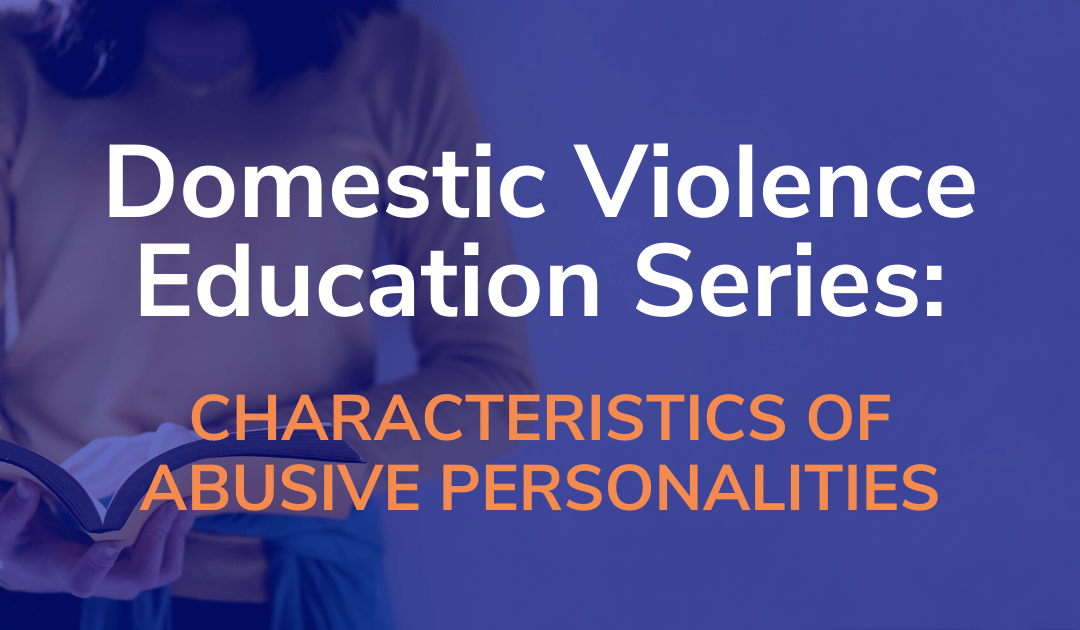Characteristics of Abusive Personalities
Resilience Case Management Team
We are often asked, “What does an abusive person look like?” The truth is, there is no size-fits-all description of an abuser. It doesn’t matter what color your skin is, how much money you make, what your sexual orientation is – domestic violence can happen to anyone, therefore abusive people come from all walks of life. What we can tell you is this: there are characteristics you can learn about and watch out for in the world of dating. Here you will read about warning signs of abuse and we will answer the following questions: What is change? What does it look like in a relationship? What does a healthy relationship look like?
Warning signs of abuse, often called “red flags,” can signal to us that a partner may be trying to hold power or control over us. While this isn’t an all-inclusive list, here are eight examples of what these warning signs can look like, adapted from End Abuse 4 Good:
Intensity: someone you just met exhibits the following behavior: lying or exaggerating; insisting you move in/get married/have kids immediately; trying to win over friends and family, over the top gestures like expensive gifts/dates, extreme love letters; sweeping you off your feet; bombarding you with texts and emails; behaving obsessively and non-stop calls. Note here, that this behavior will feel overwhelming, outside of your comfort zone, and your instincts will tell you something is off here. Listen to what your brain and body are telling you.
Jealousy: behaving irrationally when you get a promotion, job, or new friend; becoming angry when you speak to anyone of your preferred dating gender; persistently accusing you of cheating; resenting your time with friends, family, coworkers, or activities; demanding to know private details of your life.
Control: telling you how to dress, when to speak, what to think; showing up uninvited at your home, school, or job; checking your emails, phone, social media accounts; going through your belongings; timing/following you; controlling/withholding money; sexually coercing you.
Isolation: insisting you only spend time with them; making you emotionally, psychologically, or financially dependent; preventing you from seeing your friends, family, or children; forbidding you from going anywhere or speaking to anyone; keeping you home.
Criticism: calling you overweight, ugly, stupid or crazy; ridiculing your beliefs, ambitions or friends; claiming they’re the only one who really cares about you; making you feel bad about yourself; brainwashing you to feel worthless; accusing you of being a bad parent.
Sabotage: making you miss work or school by starting a fight or having a meltdown; being needy when you’re busy or doing well; making you believe you’re crazy, alone or helpless; hiding your keys, money, or phone; stealing your belongings; destroying your self-esteem.
Blame: making you feel guilty and responsible for their aggressive or destructive behavior; blaming the world for you or their problems; always saying “this is your fault” or “you made me do this.”
Anger: overreacting to small problems, frequently losing control; violent outbursts, having severe mood swings, drinking or partying excessively when upset; threatening to hurt you or loved ones, picking fights, having a history of violent behavior and making you feel afraid.
Warning signs can be helpful in alerting us to the possibility that someone may be trying to control us or could be potentially abusive toward us, but what if they promise to change their behaviors or to never repeat the same mistake? Change can be a difficult obstacle to tackle when it comes to abusive patterns of behavior. Stopping abusive patterns often means breaking abusive patterns taught through generations as “normal” and undoing thoughts of the way someone should behave based on their gender. While it’s difficult to undo this, it’s still possible for someone to learn healthy behaviors in a relationship. If you are curious if your partner is truly changing, ask yourself some of the following questions:
How is your partner treating you? Do they listen to and respect your opinion, even if they disagree with it?
How committed is your partner to change? Are they willing to continue individual counseling as long as necessary? They are not dropping out of or threatening to quit counseling or attending counseling irregularly.
How does your partner talk about their abusive behavior, if at all? Are they willing to hear feedback and criticism? Are they honest about their failures and is willing to be held accountable for abusive thinking and behavior?
A healthy relationship should consist of nonviolence. Click here to view the Equality and Respect Wheel which portrays what a healthy relationship looks like.
There is no justification for abuse. If you or someone you know is experiencing violence, Resilience is here to provide free and confidential support.
For immediate support, reach out to us at:
24-Hour Help Line: 1-800-848-5991
Hablamos Español: 1-866-728-2131
Safe E-mail: GinnyP411@gmail.com
